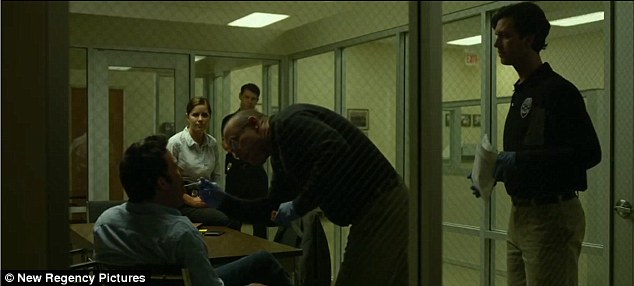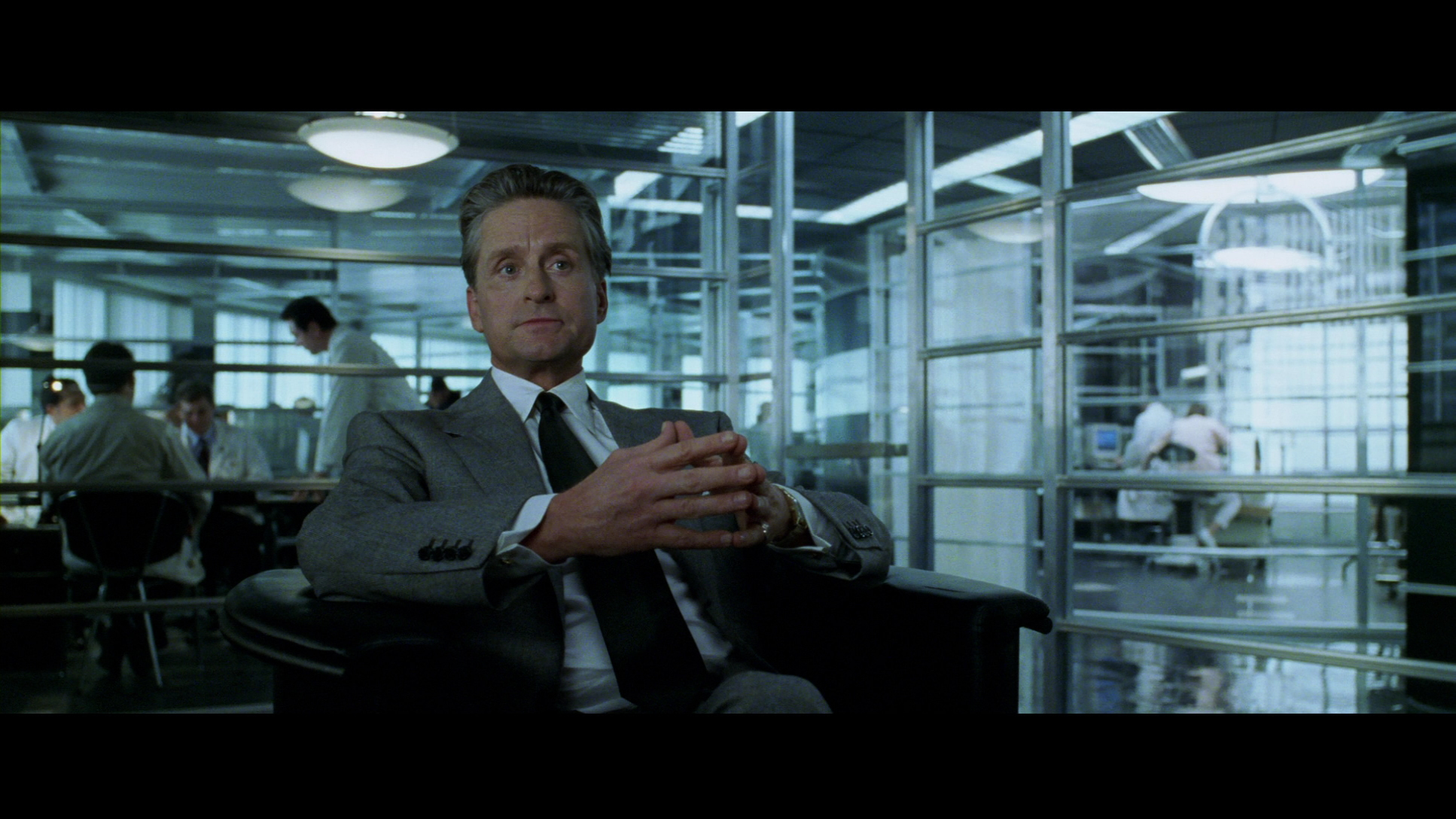Gone Girl (2014): Chilled Cynicism with a Dash of Misanthropy
 10-22-2014 | tagged
10-22-2014 | tagged  Ben Affleck,
Ben Affleck,  David Fincher,
David Fincher,  Gillian Flynn,
Gillian Flynn,  Neil Patrick Harris,
Neil Patrick Harris,  Rosamund Pike,
Rosamund Pike,  Tyler Perry,
Tyler Perry,  cynicism,
cynicism,  misandry,
misandry,  misanthropy,
misanthropy,  misogyny,
misogyny,  suspense,
suspense,  thriller |
thriller |  Post a Comment |
Post a Comment |  Email Article |
Email Article | Dear readers, the next few reviews will relate to non-Arab films, in fulfilling requiremments of a film criticism course that I am taking.
The truth is valuable only in so far as it is expedient, to our security then to our advancement. Otherwise, most people would have readily qualified as idealists and when was the last time you came across an adult who convincingly exuded idealism. In David Fincher’s Gone Girl only one could qualify; she’s a daft mother of triplets.
David Fincher himself is not an idealist; if he were he would be making microfinanced films about the imperative to do the right thing, regardless of the consequences. Instead, he makes polished, meticulously crafted commercial vehicles. He appears most comfortable working within the crime genre and is keen to position psychopathy/sociopathy as the propulsion to such films’ stories, as he has in six of the ten movies he has made: Se7en, Fight Club, Panic Room, Zodiac, The Girl with the Dragon Tattoo and, now, Gone Girl. I would have counted as a psychopath the creature in Alien 3, had it been human.
 Nick Dunne ensnared in Gone Girl
Nick Dunne ensnared in Gone Girl Benjamin Van Orton ensnared in Fincher's The Game (1997)A monster that was, as is Amy Dunne in Gone Girl, the engineer of its locomotive of doom. It is a role realized vividly and fervently by Rosamund Pike. Her face alone shown in the scene that brackets the film, but not her voice, rather the voice of her spouse Nick Dunne, performed by Ben Affleck in an appropriately minor key. In this scene, as Nick strokes Amy’s hair, he shares with us his innermost thoughts; he is mooning of murder. As such, we appreciate why his townsfolk would suspect him of murdering his girl once she’s gone missing, especially after they and we discover that his wife is not his only girl.
Benjamin Van Orton ensnared in Fincher's The Game (1997)A monster that was, as is Amy Dunne in Gone Girl, the engineer of its locomotive of doom. It is a role realized vividly and fervently by Rosamund Pike. Her face alone shown in the scene that brackets the film, but not her voice, rather the voice of her spouse Nick Dunne, performed by Ben Affleck in an appropriately minor key. In this scene, as Nick strokes Amy’s hair, he shares with us his innermost thoughts; he is mooning of murder. As such, we appreciate why his townsfolk would suspect him of murdering his girl once she’s gone missing, especially after they and we discover that his wife is not his only girl.
Once it is determined that she has gone missing, the story becomes Amy’s, as she narrates mnemonic sequences, beginning with when they had met in a party. In the scene, Nick woos Amy and a couple of years later he moves themselves from her New York City to his small-town, Missouri. That is about all the agency that Nick exercises in their marriage before her going missing on their fifth wedding anniversary. We discover that his bar is hers, his house is hers, his toys are hers and even his ties are hers. His career as a writer would have been hers, were it not for the Great Recession.
Only that her narration is not credible, as we discover halfway through the picture, once her narrated remembrances, which she notes in a journal, and which Fincher intercuts with sequences of missing person procedurals, conclude in having caught up with the present. Amy’s journal is not entirely fabricated, as Amy informs us once her narration switches from describing the vicissitudes of her life with Nick to explaining how and why she had decided to stage her own disappearance with the purpose of framing her husband for murder, a crime punishable by execution in Missouri. Amy reveals to us her method for credibly implicating Nick: to write entries truthful in their depiction of the couple’s early days, but fraudulent and indicting in their depiction of what had gone wrong in their marriage.
 "What are you thinking? What are you feeling? What have we done to each other? What will we do?"Amy is certainly psychopathic. She is not only willing to send her husband to the chair for having cheated on her, having already undercut her own potential, Amy murders an old possessive boyfriend (a campy turn by Neil Patrick Harris) to whom she had turned, after her escape plan is foiled. Yet, she is not a misandrist. She is a misanthrope, a hater of humans, but especially humans who get in her way, who most often turn up as men.
"What are you thinking? What are you feeling? What have we done to each other? What will we do?"Amy is certainly psychopathic. She is not only willing to send her husband to the chair for having cheated on her, having already undercut her own potential, Amy murders an old possessive boyfriend (a campy turn by Neil Patrick Harris) to whom she had turned, after her escape plan is foiled. Yet, she is not a misandrist. She is a misanthrope, a hater of humans, but especially humans who get in her way, who most often turn up as men.
Nor am I entirely on board in describing Gone Girl as misogynistic. Indeed, the picture does centrally depict a criminally insane woman, a type well overrepresented in cinema, considering the well-established disproportionality of violence by women, compared to by men. Nevertheless, beyond Gone Girl’s assigning its female lead principal agency in its tale, it boasts two other equally complex and empowered female characters. A Hollywood crime picture with a female lead is uncommon enough; one with three independent and intelligent female characters is bleedin' downright unprecedented!
Moreover, Fincher and Gillian Flynn (author of the antecedent novel and of the movie’s screenplay ) decidedly undercut the film’s own realism, not only by prodding us to question the veracity of what we had been told and what we had seen in the flashback sequences, but also by having camped up a couple of performances. Beside the mentioned performance by Harris, Amy affects before the other characters, expected considering her pathology, as well as to the camera. And then there’s the deputy played by Patrick Fugit, whose character sends up the wise-cracking sidekick as full-fledged jester, a contemporary harlequin.
Gone Girl’s misogyny is not what bothers me, nor is it the picture’s depiction of graphic violence. Rather it’s Gone Girl’s cynicism. None of the characters in the film is concerned with the truth in so far as it threatens their interest in self-preservation—not Nick, nor Amy’s parents, nor Nick’s sister, nor his paramour, nor his lawyer, not even the investigating officer. None but one—a neighbor mother of triplets who Amy describes as stupid, and who Fincher depicts as a suburban simpleton. It is in this depiction that the film veers into Kubrickian misanthropy.
The characters’ apathy to the truth notwithstanding, Fincher himself appears to call us out as amoral as well. It’s as if he is suggesting that since his film has given us the goods that we have paid to see in a Fincher film—the style, the craft, the mood, the violence—he needn’t tell us the truth about Amy and Nick, since Fincher figures the audience cares little about it.
Cynicism would have us suspect our capacity to motivate others, since it would have us distrust them. Thereby, Gone Girl raises the question, “Should art motivate?” I would think not, if I were a cynic.

